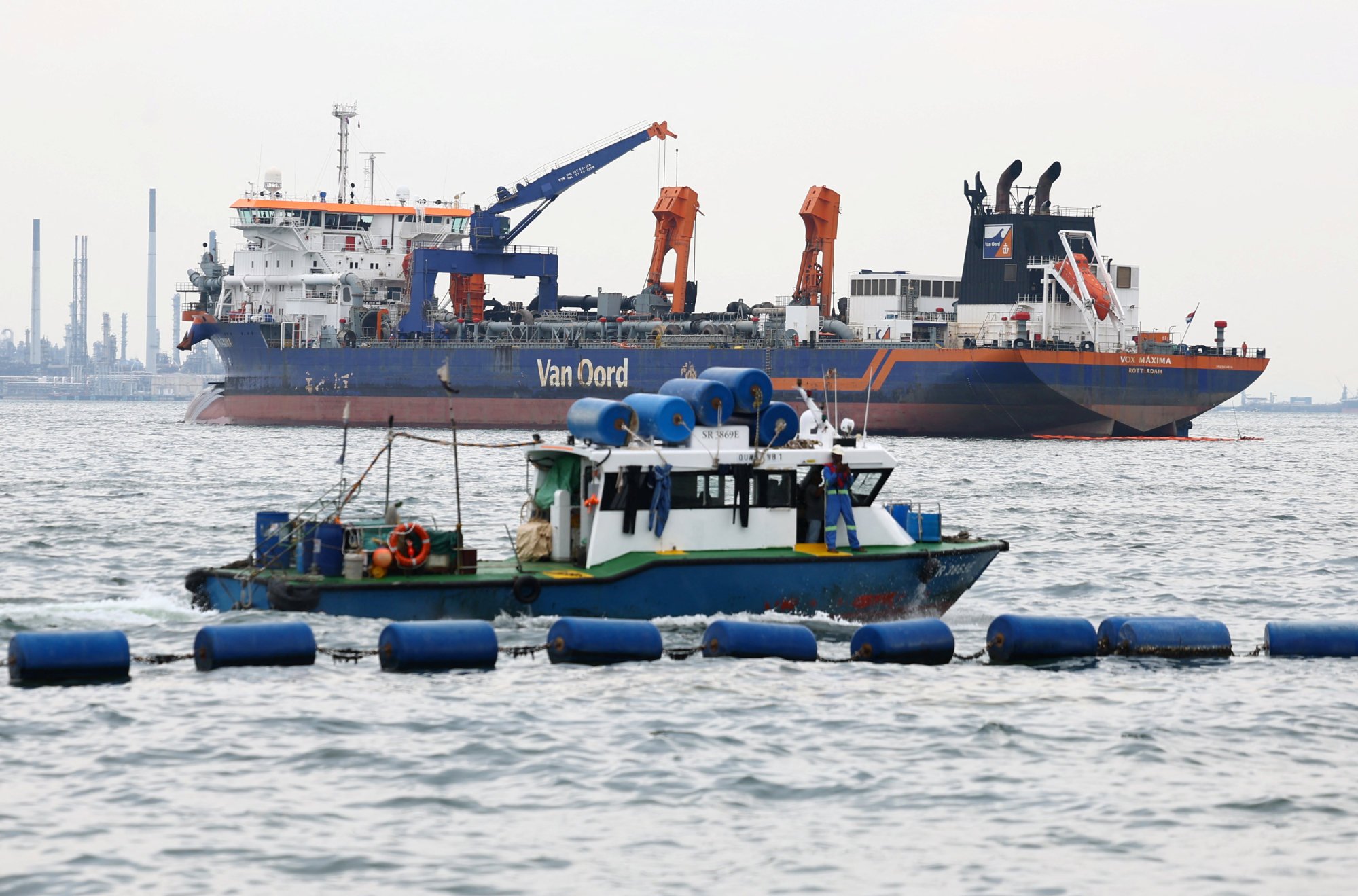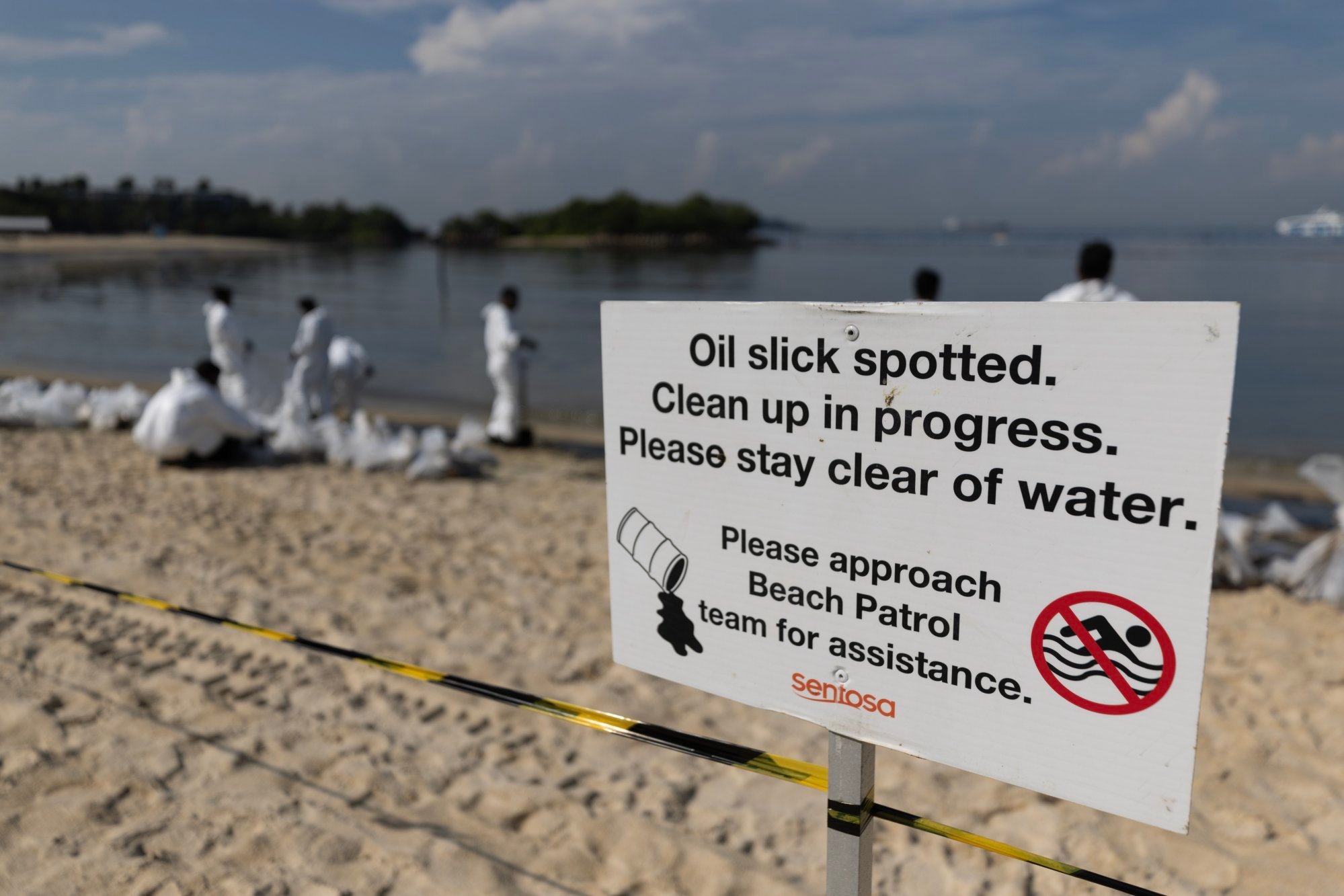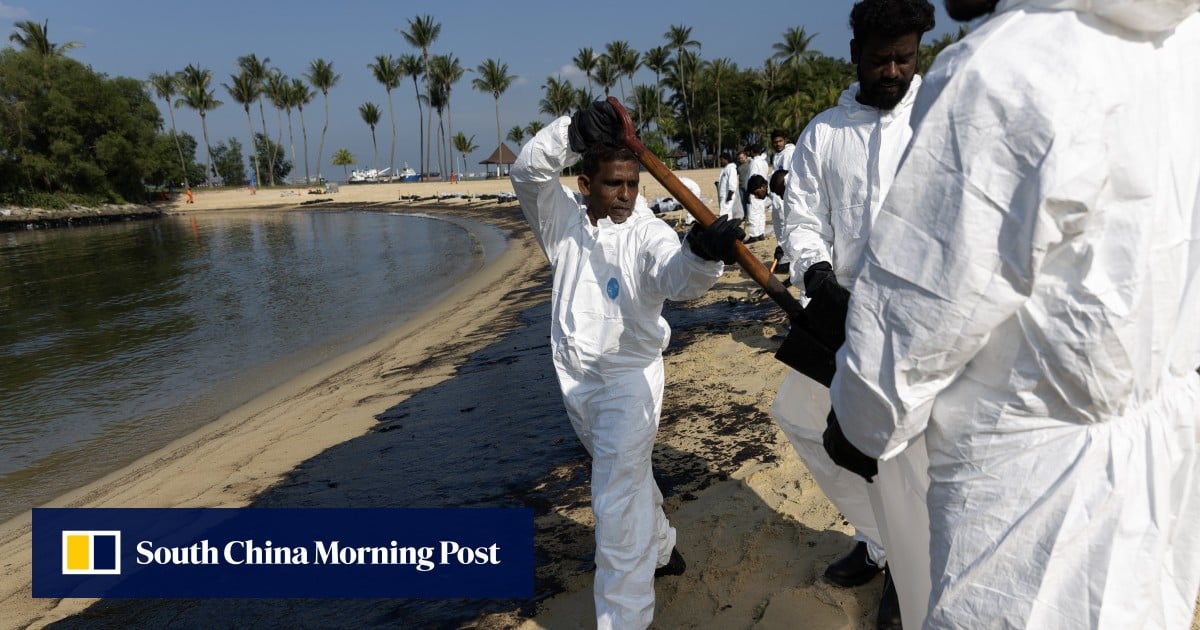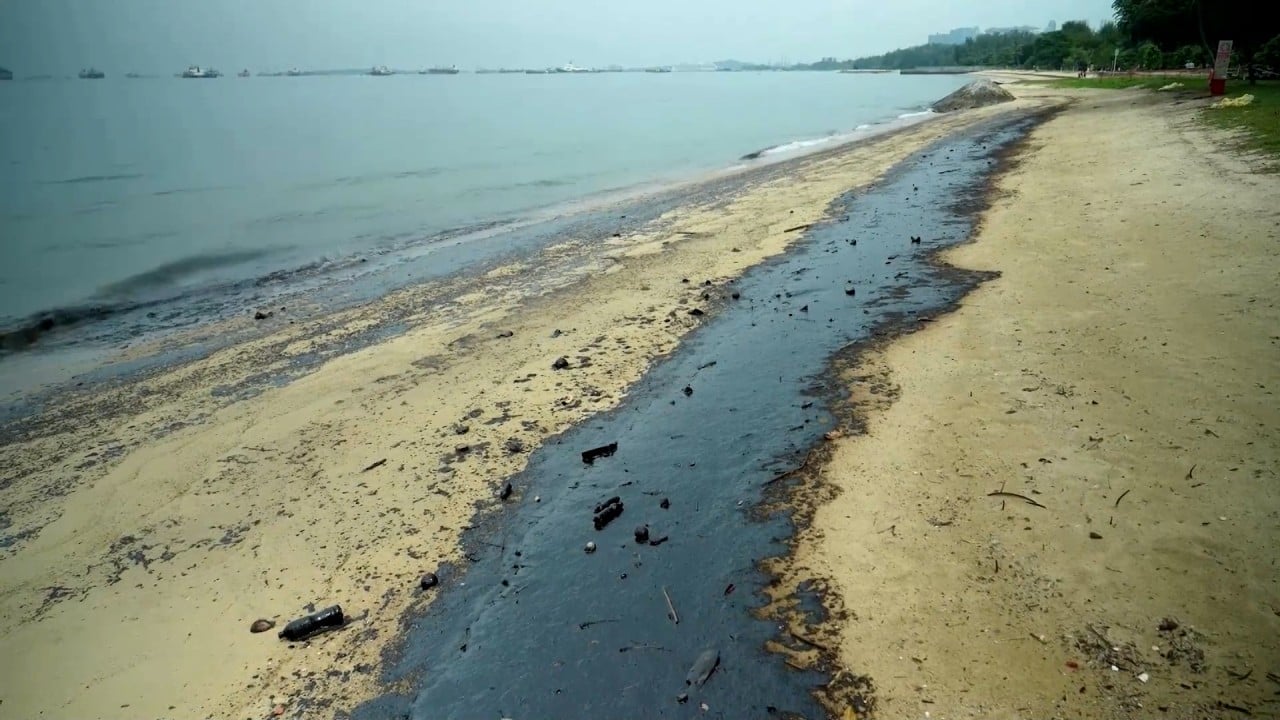Local media reported that about 400 tonnes of oil were spilled as a result.
Several beaches on Sentosa Island have been closed since the weekend because of the spill, including at East Coast Park, St John’s, Lazarus and Kusu Islands. Sea activities and swimming are not allowed at the three beaches, even though they remain open to the public.
“Investigations are still ongoing, but preliminary findings show that the allision [ship collision] on June 14 was caused by the dredger experiencing sudden loss of engine and steering controls. It is not due to port congestion, as our port waters and anchorages are not congested,” Transport Minister Chee Hong Tat said on Tuesday evening.
On Monday, Van Oord, the operator of the dredger Vox Maxima, said in a statement that it “regrets the allision under pilotage with the bunker vessel Marine Honor”.

Van Oord said it had sent a team to Singapore to assist and support the captain and crew of the Vox Maxima.
“As responsible operators, we are fully insured with a leading member of The International Group of Protection and Indemnity Clubs and will meet our responsibilities and obligations in relation to this incident,” it said in a statement.
The insurer and flag state of the vessel were also investigating the cause of the incident, the maritime contracting company said, adding it could not comment further while investigations were ongoing.
Legal experts told This Week In Asia that it could take from a few months to a year to complete the investigations.
Joseph Tan, managing director at JLex LLC law firm in Singapore, said the issue of liability in the case was multifaceted.
“Issues that the court will consider include whether there was any breach of the ColRegs [Collision Regulations]; was the Vox Maxima unseaworthy which resulted in the sudden loss in engine and steering control; was there any negligence by the owners and managers of the Vox Maxima; and whether the Marine Honor, which was stationary, was anchored in a correct location,” Tan said.
Once liability is determined, the assessment of damages will hinge on the evidence each party can provide to quantify their losses – including any claims for indemnity from third parties, he said.
Tan said the vessel owner found liable for the allision will be held responsible for all related costs and expenses. If both vessel owners are deemed liable, they will be jointly responsible for any costs that cannot be reasonably separated.
“What would be more difficult to quantify would be the cost of the damage to the environment, marine life and mangroves affected by the oil spill,” he said.
Under the city state’s merchant shipping laws, all ships entering any port in Singapore must have a contract of insurance or other security satisfying the requirements of the International Convention on Civil Liability for Oil Pollution Damage 1992.
“If it is proven that the Vox Maxima was an unsafe ship, the owner and master may potentially be guilty of an offence under the Merchant Shipping Act 1995 and may be liable to imprisonment for a term not exceeding two years or a fine not exceeding S$50,000 (US$37,000) or both,” Tan said.
The vessel owner whose ship discharged or leaked the oil will generally be liable for the contamination damage caused outside the ship in Singapore, the cost of reasonable measures taken to mitigate the damage, as well as any damages incurred within Singapore, said Samantha Ch’ng, associate director at Ascendant Legal LLC law firm.
“Environmental clean-up costs and damages resulting from an oil spill may also be imposed. There are limited defences to such liability,” Ch’ng said.

The insurers of both vessels should provide coverage for pollution damage, according to Ch’ng. “This is especially so for the oil tanker, as there are conventions which oblige tanker owners to provide compulsory liability insurance,” she said
In cases where an oil spill is solely caused by one vessel, the responsible vessel will be liable, says Ch’ng, adding that for collisions or allisions, claims may be brought against both vessels for the resulting damage.
Loss adjusters or investigators would likely be engaged by the insurer to examine the incident, according to Sharon Lin, a dispute resolution partner at Withers KhattarWong law practice. Based on their findings, the insurer would then decide whether any liabilities from the oil spill fell within the scope of the insurance coverage, she said.
“Assuming that Marine Honor was not parked in a location that it should not have been, it would appear that liability, if any, would be on Vox Maxima,” she said.
Singapore authorities reported on Tuesday that the oil spill had not affected operations at the country’s desalination plants and freshwater reservoirs, adding that air quality in the affected areas remained within safe levels.


